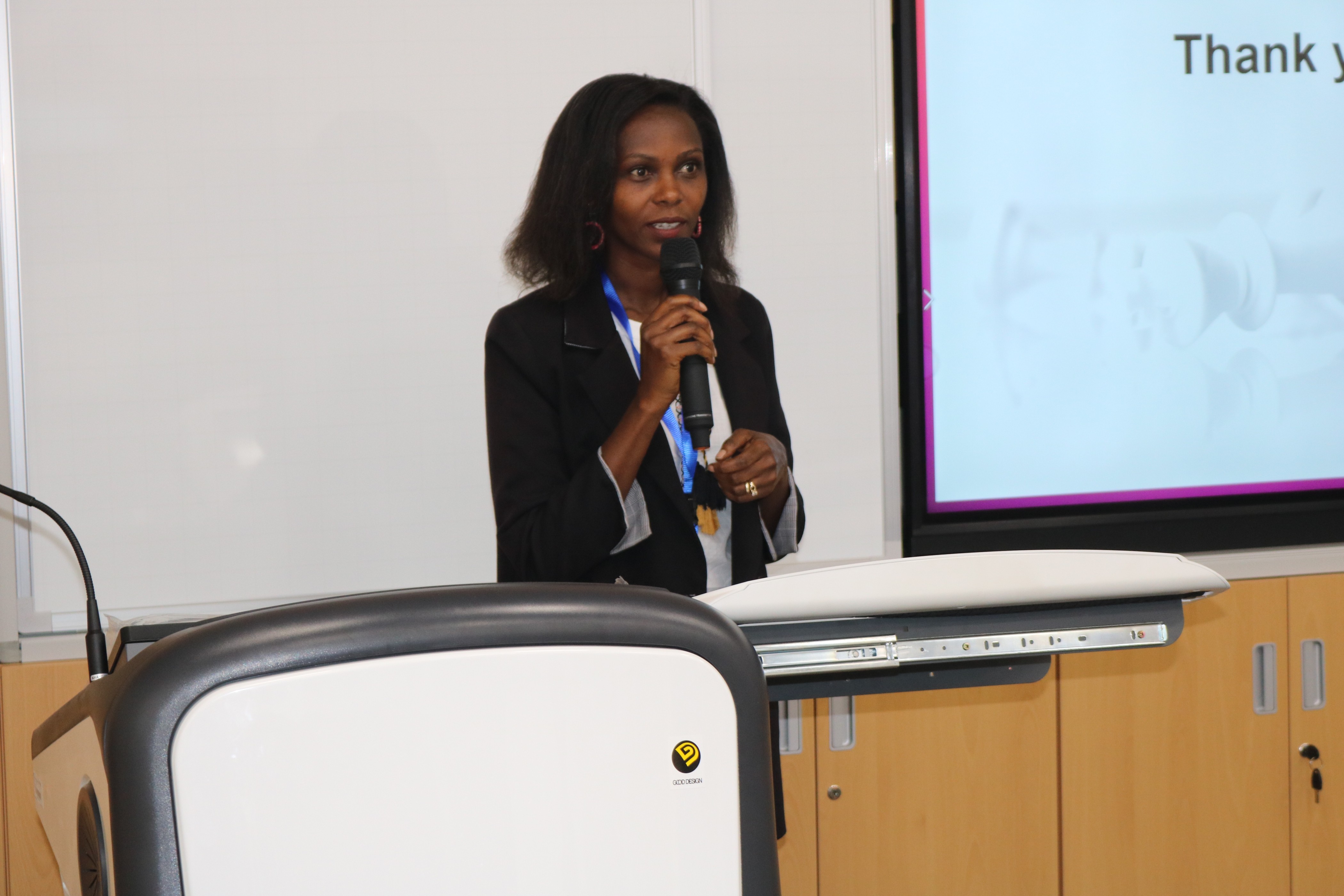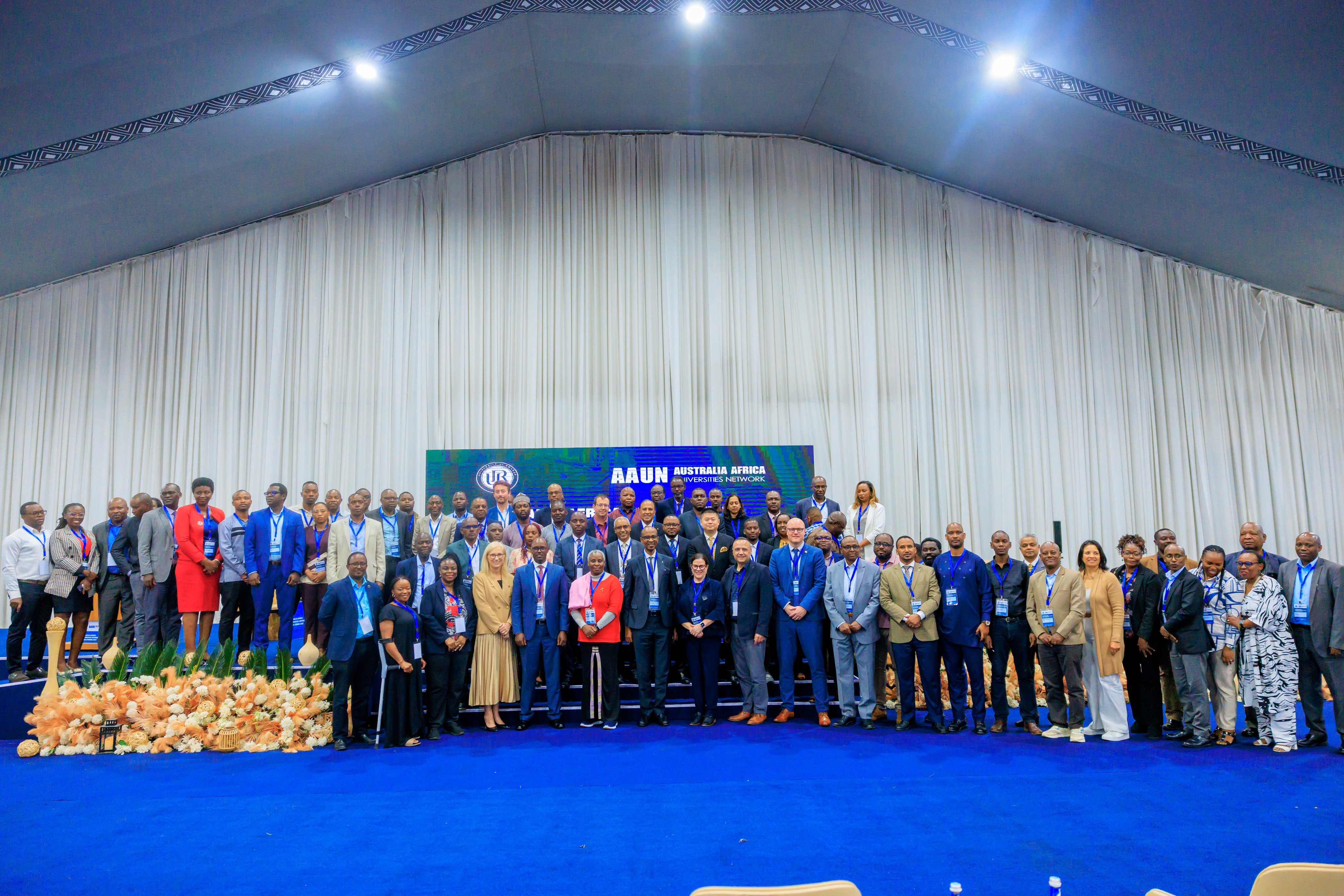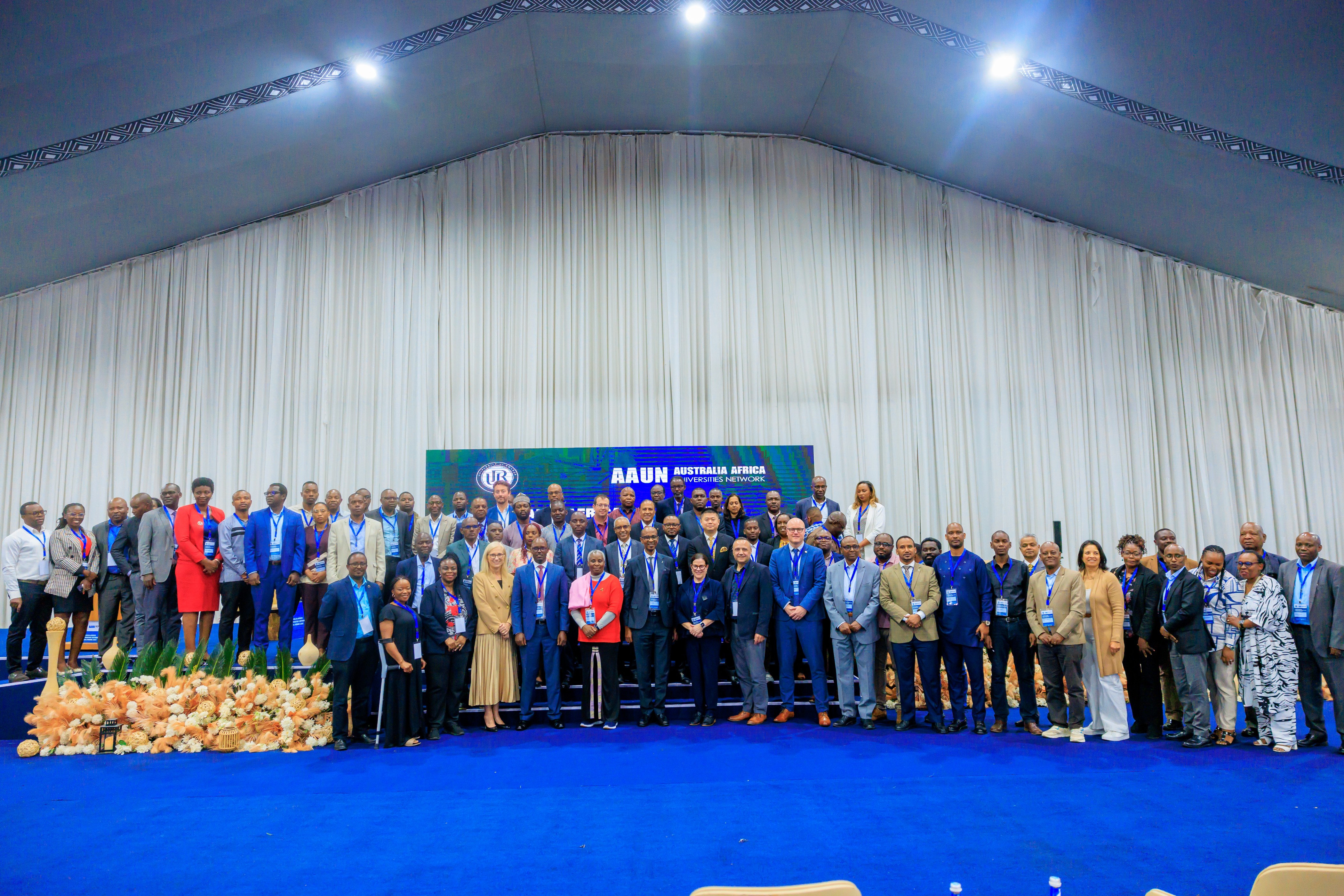On 23 May 2025, students conducting research under the Transformative Artificial Intelligence Research and Innovation Lab (TAIRI Lab) project, along with Professor Damien Hanyurwimfura, the Principal Investigator and some project members, participated in the Australia-Africa Universities Network (AAUN) Conference held in Kigali from May 22–24, 2025.
The conference, themed “Artificial Intelligence and Higher Education,” aimed to reflect on the growing role of AI in transforming university education, research, and innovation. It brought together academics, policymakers, industry leaders, and researchers to explore how AI can drive sustainable development, enhance education systems, and address both global and regional challenges.
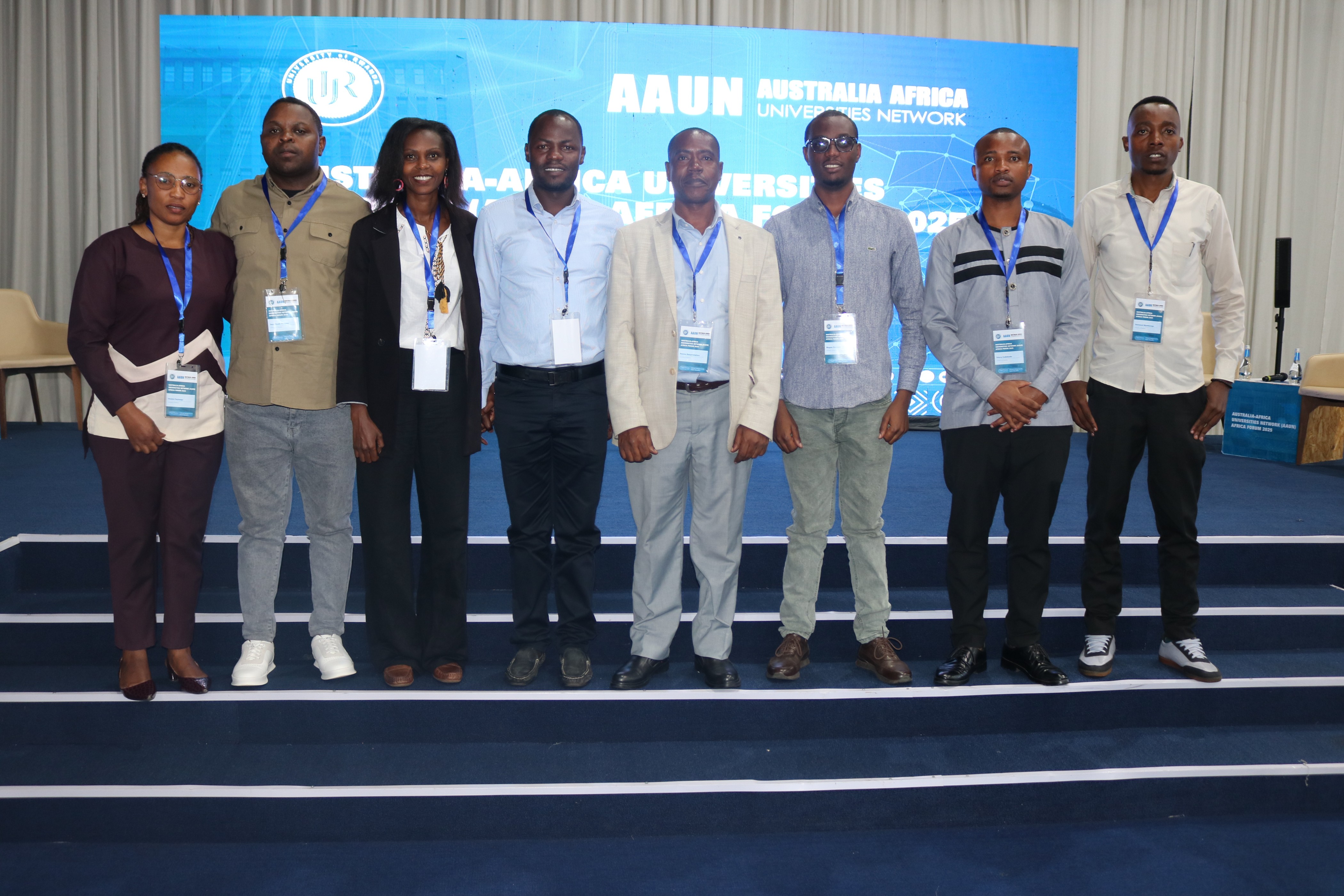
In his presentation, Prof. Damien Hanyurwimfura, TAIRI Project Investigator, shared insights on the implementation status of AI initiatives across African universities under the Science of AI Africa-AI framework. He highlighted the readiness of African universities to leverage AI and discussed the extent to which African countries have integrated AI into their national policies. He noted that only four countries—Senegal, Benin, Rwanda, and Mauritius—currently have AI strategies.
Prof. Hanyurwimfura also outlined several initiatives underway in African universities aimed at promoting and advancing the use of AI across various sectors. Hanyurwimfura highlighted other national developments in AI, noting that the Ministry of ICT and Innovation has launched an AI Innovation Lab , while the Ministry of Health is piloting a smart health assistant powered by ChatGPT, to address health-related queries
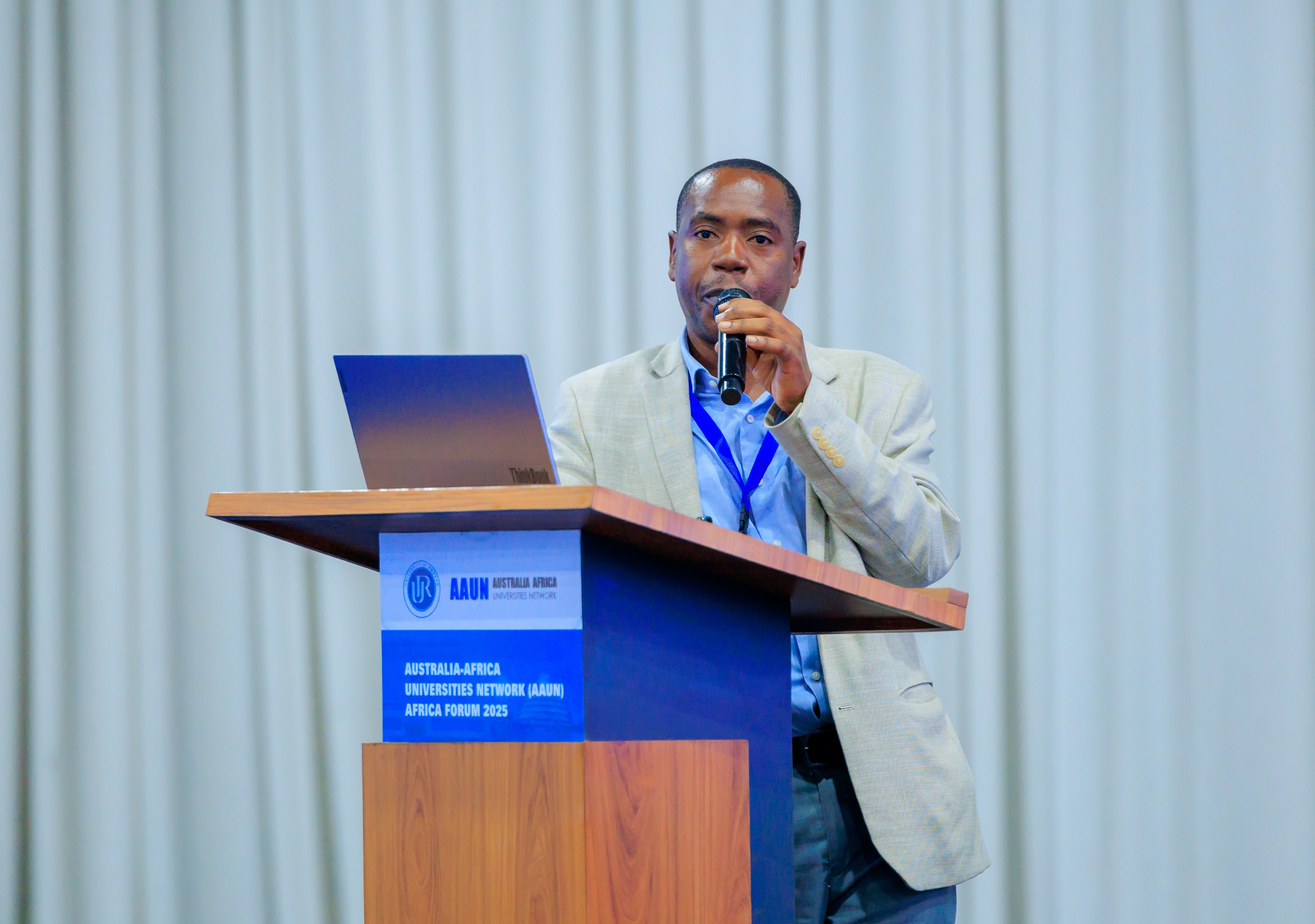
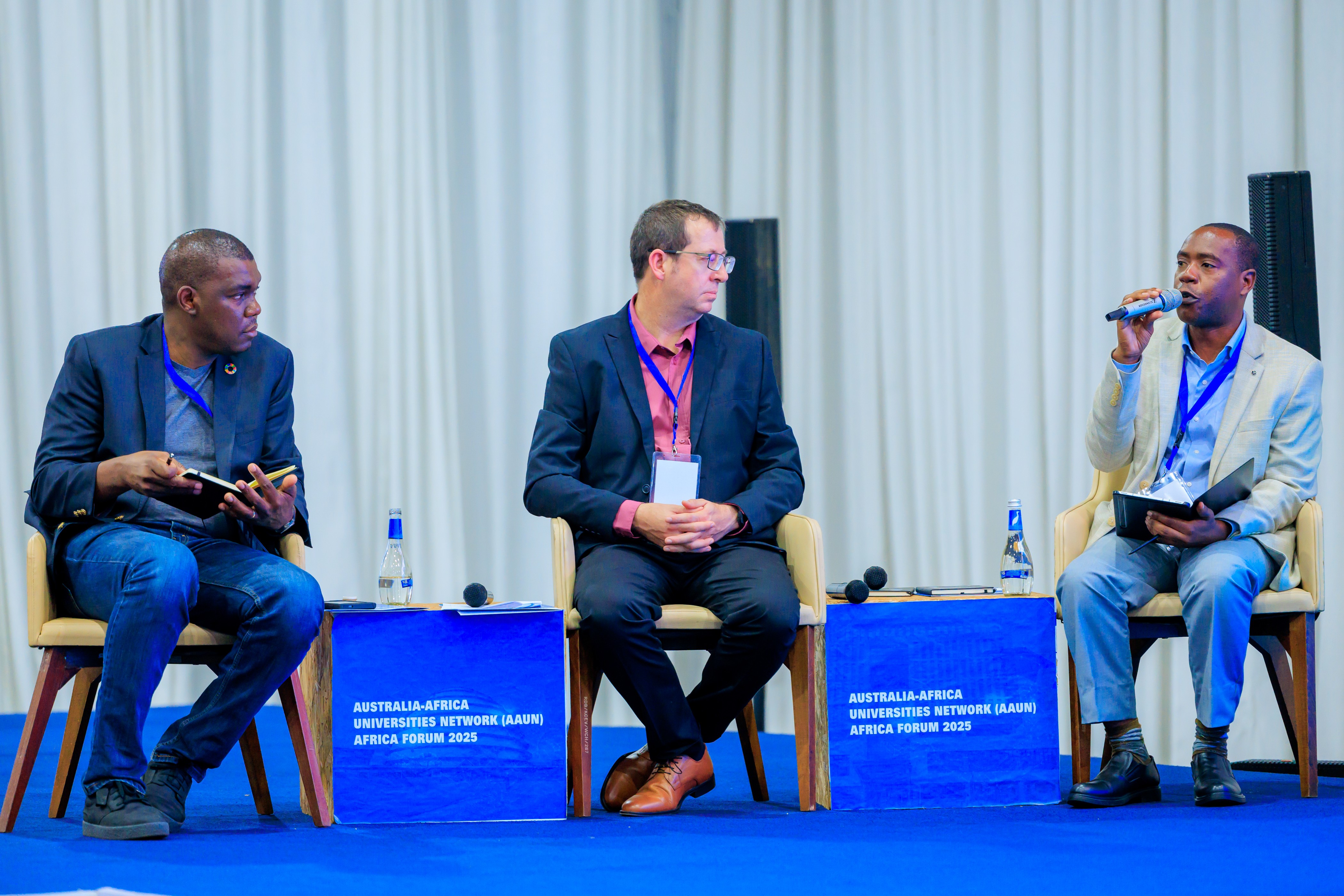
Enata Mukantwari, a PhD student under the TAIRI Lab project in the health cluster, spoke about “Gendered Research and AI.” She shared the motivations behind her involvement in AI-related research. “I was fortunate to have a father who believed in me, and that belief gave me the confidence to pursue science,” said Mukantwali. "However, many girls are still discouraged from joining science and technology fields due to social norms and limited resources”, she added.
